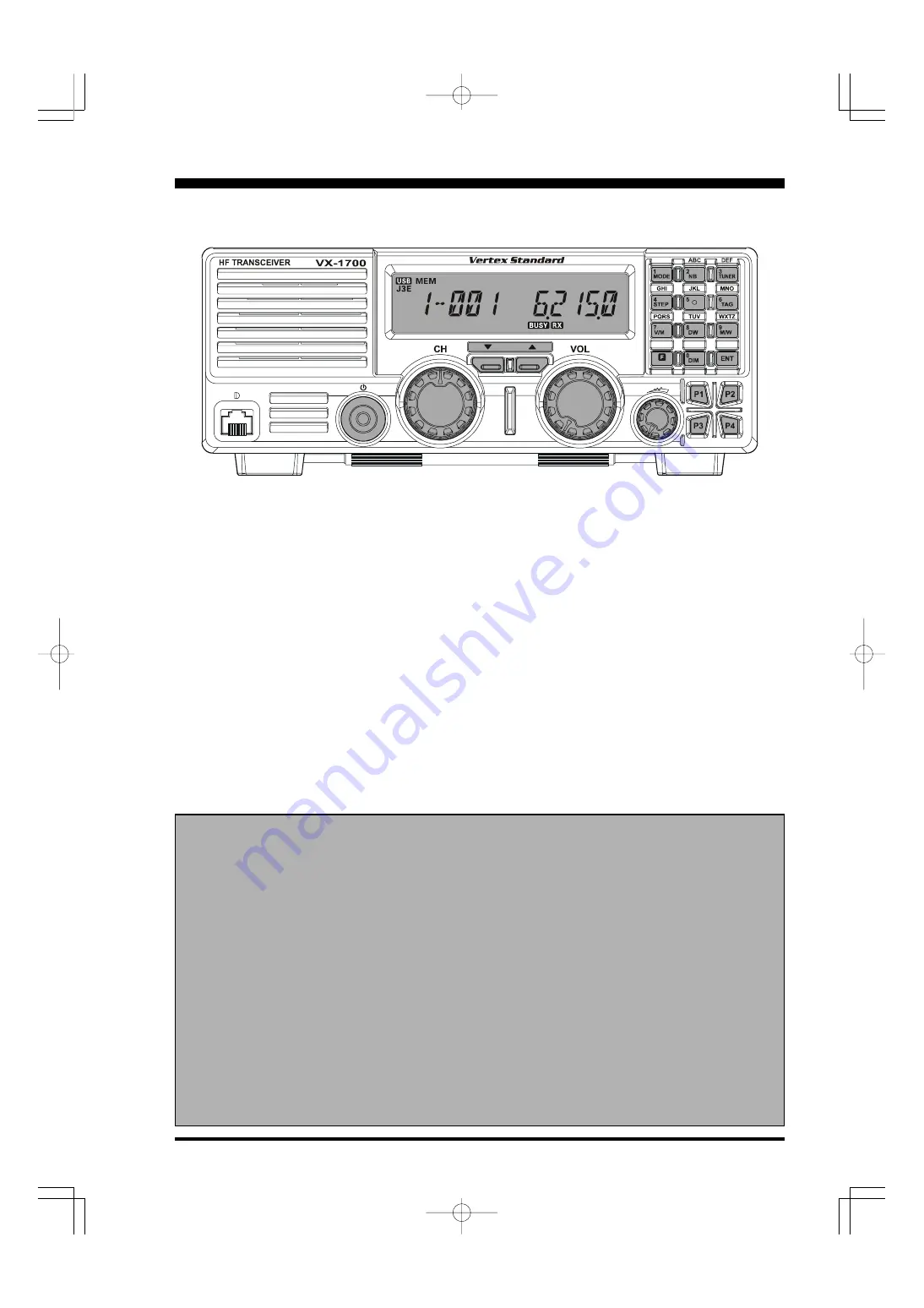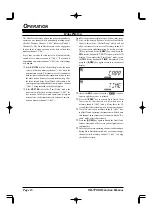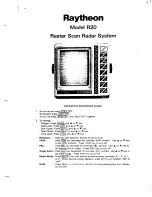
Page 1
VX-1700 O
PERATING
M
ANUAL
G
ENERAL
The Vertex Standard
VX-1700
is a low-cost, integrated HF
communications transceiver designed for the Land Mobile
market.
This advanced transceiver provides 200 memory channels
(arranged in five banks) with Alpha-numeric labeling of
the memories. And the Selcall feature allows paging of a
single transceiver or groups of transceivers by a dispatch
center.
Available options include the
VL-1000
/
VP-1000
1 kW
Linear Amplifier/Power Supply,
FP-1030A
AC Power
Supply,
FC-30
Automatic External Antenna Tuner (for 50
Ohm unbalanced antenna feedlines),
FC-40
Automatic
External Antenna Tuner (for an end-fed random-length
wire or long whip antenna),
YA-30
Broadband Dipole
Antenna,
YA-007FG
Mobile Antenna,
MD-200
A8X
Desk
Microphone,
MLS-100
External Speaker, and the
ALE-
1
Automatic Link Establishment Unit which automatically
selects the channel with the best LQA (Link Quality Analy-
sis) score from the programmed channels.
This manual includes installation, configuration, interfac-
ing, and operating instructions for the Vertex Standard
VX-1700
. We encourage you to read this manual thor-
oughly before installing or operating this transceiver.
S
AFETY
/W
ARNING
INFORMATION
The antenna(s) used for this transmitter must be fixed-mounted on outdoor permanent structures with a separation
distance of at least 2.3 m from all persons during normal operation and must not exceed an antenna gain of 0 dBd.
This device must be restricted to work related operations in an Occupational/Controlled RF exposure Environ-
ment, not exceeding a maximum transmitting duty factor of 50%. The antenna(s) used with this device must satisfy
the antenna co-location requirements of 47 C.F.R. 1.1307(b)(3).
N
OTICE
!
Do not modify this transceiver for any reason.
Refer service of this transceiver to qualified technicians only.
Should an obviously-abnormal condition arise (such as a burning smell or visible smoke), turn the main power
switch off and disconnect the DC power cable from the rear-panel DC Input jack. If this cannot be done safely,
disconnect the DC power cable at its source.
Do not place any combustible material near the transceiver.
Do not spray any liquid over the transceiver, nor use it in an environment where it is likely to become wet by
other means.
Ensure that the power and antenna connections are securely made, using cables rated with excess capacity for
the power being utilized.




































